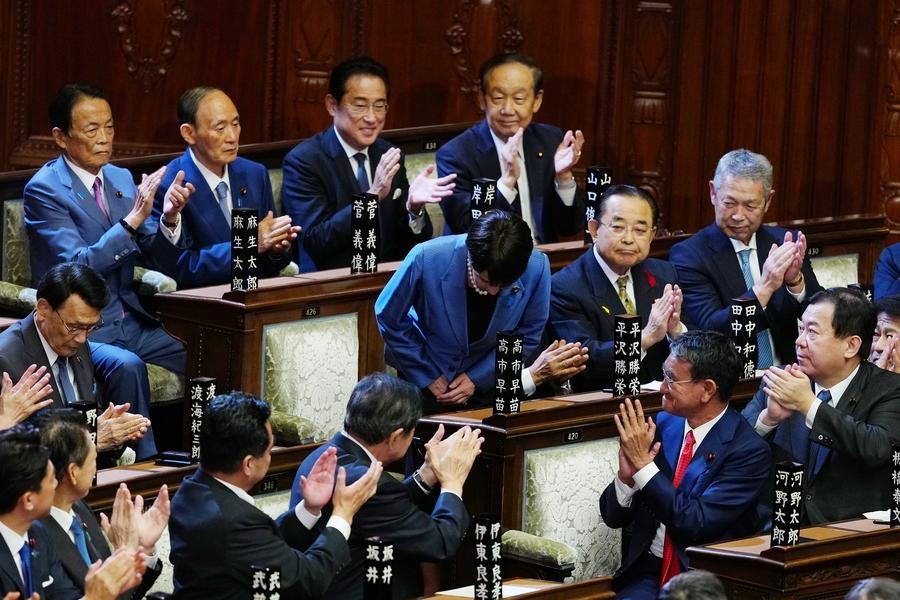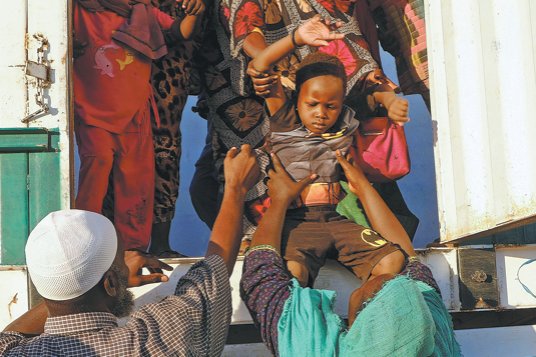Justice sought for Africa's war veterans
Recognition for forgotten soldiers should go beyond symbolic gestures: Historians

Historians are calling for justice for Africa's forgotten veterans, stressing that true recognition should go beyond symbolic gestures.
Eight decades after the World War II, African soldiers who fought under colonial flags, and the communities whose resources were exploited to sustain Europe's war efforts, remain largely unrecognized.
Benedict Wachira, secretary-general of the Communist Party of Kenya, said that despite African soldiers' sacrifices being crucial to defeating Nazi forces and their allies, their names and contributions remain absent from mainstream history.
"Without their input, the war could have ended in a very different way. The death toll of the Europeans would have been higher," Wachira said.
He emphasized that recognition should go beyond monuments and ceremonies.
"There should be an apology to the African veterans and their families for forcefully conscripting them and involving them in a war that was not theirs. The role of Africans in this war should also be acknowledged," he said.
Wachira also called for reparations not only for veterans' families but also for the countries whose resources were plundered for the war.
Hundreds of thousands of Africans were conscripted into European armies often against their will. They endured poor clothing, meager rations, and were disproportionately sent to the most dangerous front lines despite being poorly trained and equipped.
"African soldiers were used as death traps," Wachira said. "After the war, former British soldiers were compensated with money and even given land. None of this was extended to the African fighters who returned home," he said.
He said while the graves of British soldiers killed in East Africa are still carefully maintained in places such as Nanyuki in Kenya, no similar effort has been made to honor African veterans.
Macharia Munene, professor of history and international relations at the United States International University in Nairobi, said Africa's contributions have been overlooked because most histories were written by Europeans who chose to glorify themselves.
He urged African scholars to rewrite the history of the war, adding that such efforts require a supportive political environment.
Munene said the school curricula highlight European leaders such as Winston Churchill and Franklin Roosevelt, but ignore the roles of African soldiers who fought on the front line.
"This is not by accident, it reflects an attitude," he said.
He said it was only in the 1960s that researchers started uncovering how Africans' wartime experiences contributed to anti-colonial sentiments and uprisings against colonial rule.
"Colonialism itself was racism. Because it persisted, anything related to Black people, whether in the war or elsewhere, was deliberately excluded from education," Munene said.
Correct narrative
He urged the African governments to correct that narrative.
"The idea that Africa's contribution to the war was minimal is false. Apart from the manpower, Africa provided material support such as food. Without this, Britain or France might have collapsed," he said.
Munene recommended public commemorations of the veterans, oral history projects, and the inclusion of Africa's role in school curricula.
Both Wachira and Munene agree that the story of Africa's World War II veterans highlights the dangers of being drawn into conflicts that serve foreign interests, and underscores the need for Africans to reclaim their historical narratives.
Munene said the battle is one of the mind, warning that if Africans do not interpret their own past, others will misinterpret it for them.
He urged that history be taught from kindergarten through university to help future leaders understand what to protect and enable them to craft informed policies.
"Education should be structured in a way that children grow up knowing the interests of their country," Munene said.
He said that one of the enduring legacies of colonialism was making Africans disregard their own history, erasing its positive aspects and ultimately molding them into "clones of the Europeans in black skins".
Wachira stressed that the devastation of World War II offers crucial lessons that must guide the future.
"There must be a global commitment to prevent such a scale of conflicts," he said.
edithmutethya@chinadaily.com.cn

































